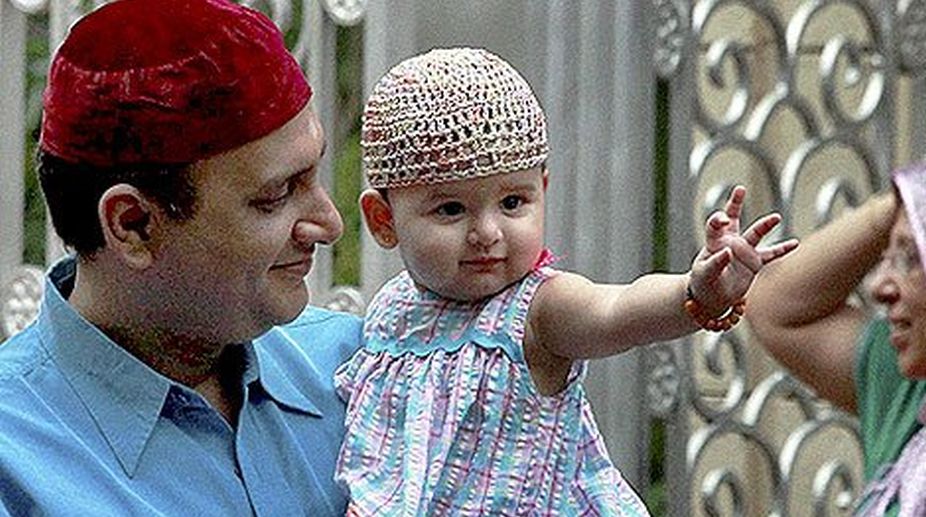Over 130 babies were born since the government launched the ‘Jiyo Parsi’ scheme in 2013 to arrest the Parsi community’s declining population, says a foundation associated with the implementation of the initiative.
The Parzor Foundation is implementing the scheme, launched by the then UPA government, along with the Union minority affairs ministry.
Advertisement
The population of Parsis plunged from 1.14 lakh in 1941 to 57,264 in 2011.
The average of Parsi children born annually over the last two decades was around 200, according to Shernaz Cama, director of Parzor, a project that aims to reverse the downward trend with the government’s help.
“In such a backdrop, if you compare the number of children born in the last three years (131) under the scheme, then it is a proportionately a good number,” Cama told PTI.
She attributed the sharp decline in the birth rate in the community — located mainly in Maharashtra’s Mumbai and parts of Gujarat — to socio-psychological reasons.
These include Parsis having late or non-marriages, its members marrying with people outside the community and also many couples not willing to have babies.
Demographically speaking, 31 per cent of the Parsis are aged above 60 years and 30 per cent are unmarried.
“Parsi women are very highly educated. They do not wish to marry till they finish their education. So, there are late marriages. Once a couple has a late marriage, their fertility automatically goes down (biologically),” Cama said.
The total fertility rate (TFR) of the community is 0.8, that is, a Parsi woman in her total child bearing age has less than one child on an average.
“And that’s a very serious problem,” Cama added.
To counter the situation, the ministry and the foundation have adopted a multi-prong approach to advocacy (counselling), medical and financial assistance to couples seeking help under the scheme.
“We are advocating and counselling people to get married at the right age. We are even pushing couples to have a second child, for that is important from the point of view of health of their family.
“Our counsellors are available 24×7. They have been de-stressing people whenever they are under stress,” Cama said.
Under the programme, the ministry has been providing assistance to families seeking help for treatment.
According to the second phase of the scheme, a Parsi family having an annual income of Rs 15 lakh and below will get 100 per cent assistance from the government.
Those having a yearly income between Rs 15 lakh and Rs 25 lakh will get 75 per cent assistance and those community members earning more than Rs 25 lakh and above annually are entitled to get 50 per cent assistance for medical treatment required.
“Add to this, our doctors have been very supportive and have not given up on people who may not have succeeded (in having babies) the first time. All these efforts have been positive. And that is how, we have been able to increase the number,” Cama said.
According to the ministry, the scheme will continue in the remaining period of the 14th Financial Commission, that is, till 2019-20 with a total budgetary provision of Rs 12 crore. This is a 100 per cent central sector scheme.











